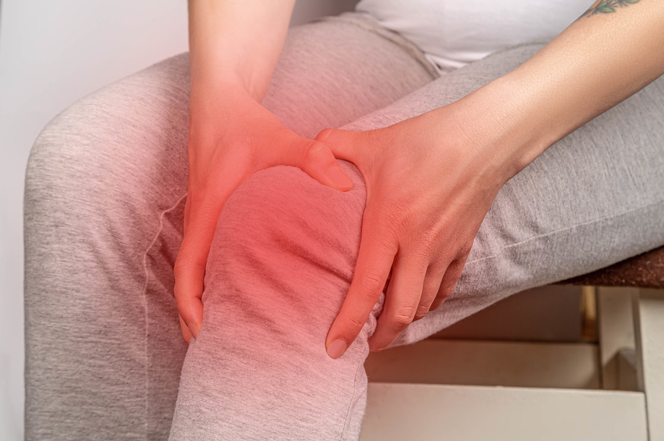What is chronic venous insufficiency? Your legs encompass a lot of healthy blood flow from and to your heart. Every blood vessel in your legs contains a one-way natural valve that prevents the blood from following in the wrong direction, i.e., backward. If the blood starts flowing backward, it can be potentially disadvantageous to your health. In case of experiencing a chronic medical health condition such as chronic venous insufficiency (CVI), the blood valves in the vessel stop functioning properly. The valves may become dislodged or struggle with other discrepancies that can cause the blood to flow backward.

(Source)
When the blood is flowing in two different directions within the same vessel, it can cause a series of health problems. Since veins carry the deoxygenated blood back to the heart, non-functional valves can allow the blood to keep flowing towards the legs. This can cause swelling and painful cramps in the legs due to blood pooling up. Ulcers, spider veins, and varicose veins are the initial consequences of such health issues.
An Overview of Chronic Venous Insufficiency (CVI)
Since veins are responsible for carrying blood back to the heart from your legs, it can be painful when the blood flow takes the opposite direction. When the venous walls and valves suffer damage, blood flow discrepancies can occur. “Stasis” can occur, which refers to the pooling of blood in a body part, i.e., blood vessels.
As your vein walls squeeze due to calf muscle activity, the blood is pushed upwards, and the valves close behind them to aid in the movement. But due to venous wall damage, the valves don’t keep the blood up. Thus, swelling occurs. As blood struggles to reach the heart, insufficiency can rapidly progress at an even massive rate.
Normally, it’s the people of age who suffer these kinds of health issues. As the body ages and gets weaker, the veins suffer damage and become prone to various health issues and conditions. One of the most general damages that an elderly can struggle with is chronic venous insufficiency. But, this can also occur in healthy and young adults as well.
The Best Treatment Options with a Professional Vascular Surgeon
There’s not just one treatment option for chronic venous insufficiency (CVI). Multiple treatment options and methods can help you alleviate the symptoms of this painful venous health disease. Your vascular surgeon, depending on their expertise, will take different factors into account before proposing the right treatment option. Your surgeon will inquire about the severity, extent, painful symptoms, and medication use already in progress.
Before you get the right treatment option, the surgeon will also discuss your needs and respect your opinion. Generally, these types of treatments are suitable for chronic venous insufficiency:
· Medication
Compression therapy and medication usually go side-by-side but will be based on your surgeon’s discretion. Medication can help you improve blood flow and prevent ulcers. The same goes with compression therapy, focusing on the affected blood vessels around the leg. If chronic venous insufficiency poses serious risks of heart failure and kidney diseases, your surgeon might prescribe strong medication to draw excess fluid away from your body.
· Sclerotherapy
Normally suitable for chronic cases, your professional surgeon will deliver a chemical agent to the affected vein or veins through a simple injection. The chemical solution will have a strong agent that will damage and scar the affected veins. Hence, the vein walls will collapse, making the vein itself unsuitable for carrying blood any longer. Sclerotherapy allows surgeons to divert the blood flow towards the healthier blood vessels in the legs.
· Radiofrequency or Endovenous Laser Ablation
If you require a minimally-invasive vascular surgery, you can discuss your eligibility for radiofrequency ablation or endovenous laser ablation. It involves using a thin slit-like incision to insert a fine catheter towards the affected vein. Through the said catheter, the surgeon delivers heat and excessive temperature that damages the affected vein. Hence, it causes the walls tccar tissue.
· Invasive Surgeries
Litigation and stripping occur in severe cases when other minimally-invasive surgeries might not be effective if the overall health is a major risk. The surgeon will make a proper incision after providing you with anesthesia. Following that, the surgeon will tie the affected vein or remove it depending on the severity. Whether it’s litigation or stripping, the success rates are usually high in all cases.

· Blood Flow Improvement Therapy
In acute cases, professional surgeons guide their patients and provide helpful, caring tips. One of those tips includes keeping your legs elevated for a set period several times a day. This will help improve the blood flow towards the heart. Compression stockings are also helpful as an alternative therapy. Furthermore, surgeons suggest keeping up with regular physical activity.
Chronic Venous Insufficiency: Conclusion
Do you want to receive the best possible healthcare services for your chronic venous insufficiency condition? Do you want to get rid of the occasional discomfort you experience daily? Dr. Norman Chideckel, at the Vascular Surgery & Vein Center. Offering the most compassionate and polite care to all deserving patients, our center makes sure that the patients have their needs fulfilled.
For your information, Dr. Chideckel, has worked with many expert individuals and carries extensive experience in treating vascular health issues. Call us a to schedule a meeting with a vein specialist.
Vascular Surgery & Vein Center
108 East 96th Street
Front 1
New York, NY 10128
212-993-6133






